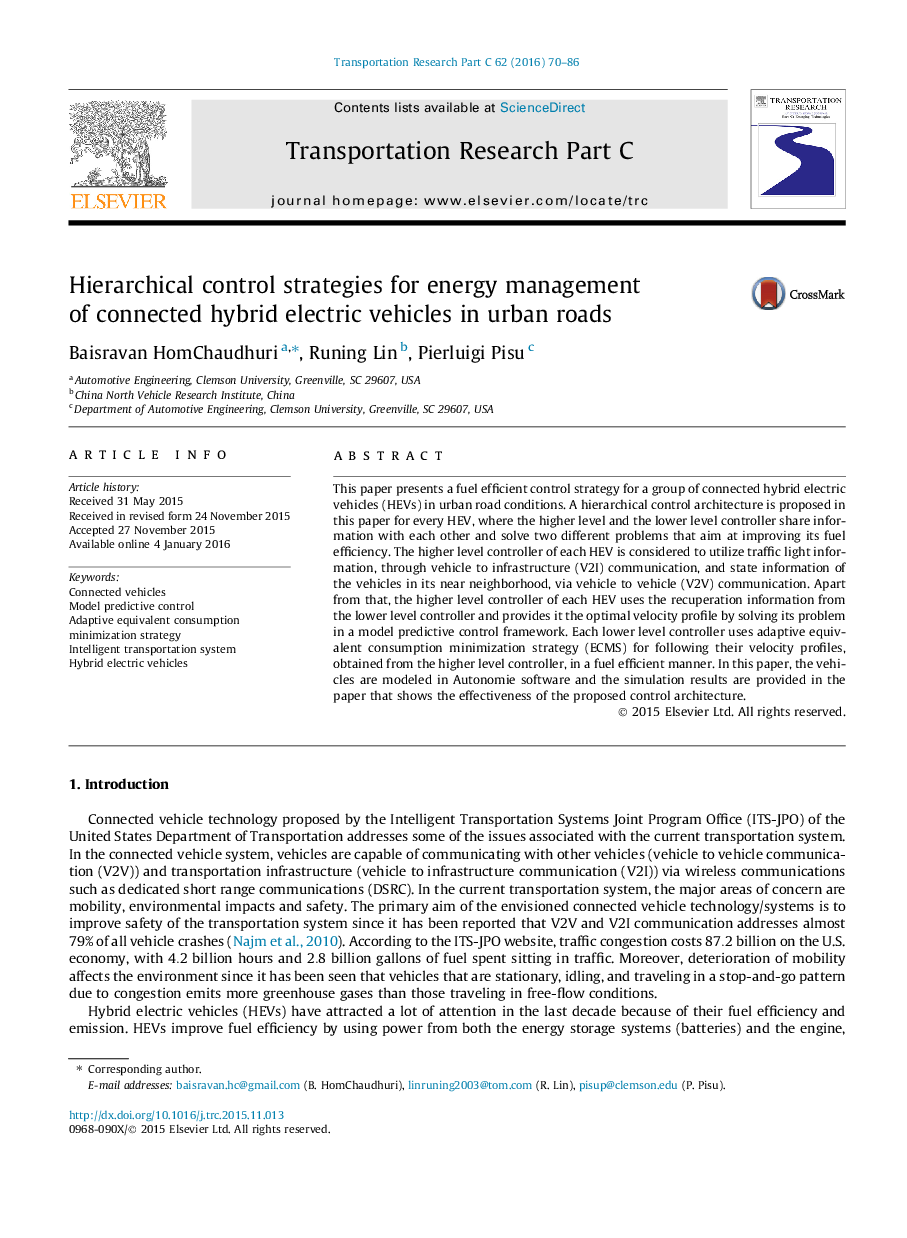| Article ID | Journal | Published Year | Pages | File Type |
|---|---|---|---|---|
| 524845 | Transportation Research Part C: Emerging Technologies | 2016 | 17 Pages |
•We present a hierarchical control strategy for connected hybrid electric vehicles.•Both controllers solve problems focusing on fuel efficiency and energy management.•Control strategy results in improvement in fuel efficiency and system mobility.•Reduction of carbon dioxide emission by the improvement of system mobility.•Reduction of red light idling of the vehicles is also achieved.
This paper presents a fuel efficient control strategy for a group of connected hybrid electric vehicles (HEVs) in urban road conditions. A hierarchical control architecture is proposed in this paper for every HEV, where the higher level and the lower level controller share information with each other and solve two different problems that aim at improving its fuel efficiency. The higher level controller of each HEV is considered to utilize traffic light information, through vehicle to infrastructure (V2I) communication, and state information of the vehicles in its near neighborhood, via vehicle to vehicle (V2V) communication. Apart from that, the higher level controller of each HEV uses the recuperation information from the lower level controller and provides it the optimal velocity profile by solving its problem in a model predictive control framework. Each lower level controller uses adaptive equivalent consumption minimization strategy (ECMS) for following their velocity profiles, obtained from the higher level controller, in a fuel efficient manner. In this paper, the vehicles are modeled in Autonomie software and the simulation results are provided in the paper that shows the effectiveness of the proposed control architecture.
